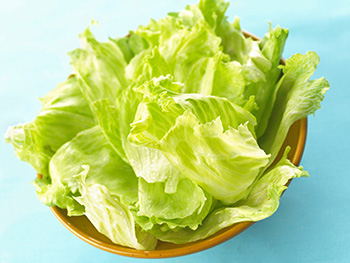It's easy to get answers about health and nutrition! Just send your question by email to [email protected] and Dr. Harlan will respond to selected questions of general interest. Answers will be posted in the Ask Dr. Gourmet newsletter (sign up now!) and archived in the Ask Dr. Gourmet section of the website.
Please note that the Ask Dr. Gourmet feature is restricted to questions regarding food and nutrition. Due to the many questions we receive, not all questions may be answered. For more specific questions about your individual health, please contact your doctor. About Timothy S. Harlan, MD, FACP, CCMS | Terms of Use | Privacy Policy
Ask Dr. Gourmet
What's the best way to clean fruits and vegetables to prevent E-Coli?
I saw a show on TV recently about people getting very sick after eating bagged lettuce/salads. They got E-Coli, somehow. I was wondering if you could explain the best method for cleaning lettuce and other fruits and vegetables so that this doesn't happen?
Dr. Gourmet Says...

This has been an increasing problem. There is evidence that this bacteria contaminates the lettuce through use of manure fertilizers. In some cases there have been E. Coli on greens and vegetables that have not been fertilized this way.
As with all fresh foods purchased in the grocery today, it is a good idea to follow some guidelines for cleanliness.
Wash your hands before working with lettuce or other raw produce. Bagged lettuces and greens have an expiration date stamped on the package. Even if the product looks OK you should avoid buying them after the expiration date. A lot of bagged salads have been washed and are labeled "Pre-washed" or "Ready to eat." Even so, the recommendation is to wash them again.
Make sure that you wash cutting boards that have been in contact with any raw meat.
Keep greens and vegetables refrigerated.
Bacteria can grow faster in foods that are older or are deteriorating, so purchase the freshest ingredients possible.
There has been one report in the literature that lettuce fertilized with manure or that has been irrigated with contaminated water can actually take up the bacteria through its root system. Researchers at Rutgers University in a report in the January 2002 issue of the Journal of Applied and Environmental Microbiology showed that the lettuce actually internalized the bacteria inside its leaves, resisting traditional external sanitizing methods.
The bottom line is that you should purchase fresh greens, vegetables, and meats and use them quickly.
Thanks for writing,
Timothy S. Harlan, MD, FACP, CCMS
Dr. Gourmet
